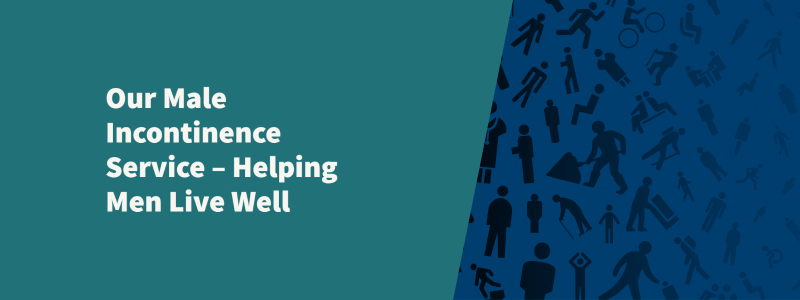A subject that is rarely spoken about in the open is male incontinence. From news stories, online articles and TV programmes, the subject is infrequently mentioned as a topic of conversation. This is damaging male health and needs to change. But where do we start?
Because there’s so little said about male incontinence that many people don’t know the facts. This is a health issue that can impact many men across the age spectrum and shouldn’t be pigeon-holed as a problem solely for older men. So, what do you need to look out for, and what should you know about male incontinence?
Facts about Male Incontinence
As part of the PHS Group, we are proud to be working to help raise the health issue of male incontinence. Some of the facts released in the white paper released this month make for interesting reading and prove just why we think providing these bins on a wide scale can help break the taboo. Here are a few key facts that our whitepaper uncovered:
- The NHS estimates that 3-6 million people in the U.K. suffer with some degree of urinary leak.
- 56% of those surveyed in our whitepaper were not aware that men aged 55 and over experienced UL
- Only 25% of those surveyed think their understanding of the issue is good
- 1 in 5 men started experiencing UL symptoms between the page of 18 and 25
- 8 out of 10 men with UI feel anxious about lack of suitable facilities when leaving home
- 1 in 4 men feel depressed about the impact of involuntary UL
Our Case Studies
The facts above are startling, but it is personal stories that impact the most. Here is the story of Steve Baughan.
Steve Baughan, 52, is a lead Quality Assurance Engineer working in software development. He lives in Gillingham in Kent with his wife and three sons. He was diagnosed with prostate cancer in Dec 2021.
“I am glad that I chose a prostatectomy, but I wasn’t prepared for what was going to happen after. The operation and the immediate after-effects didn’t really bother me, but the incontinence I experienced afterwards really upset me.
When I first arrived home after having the catheter removed, I sat on the sofa and out of nowhere, I wet myself. I was so embarrassed. It happened in front of my wife, and I had only been home for five minutes and in all honesty, it really shook me”
The story Steve tells is representative of many prostate cancer survivors. While he discusses a lot during our case study, the one stand-out message was around the pads for UL. “I thought to myself: ‘What am I supposed to do with them?’”
There are clear issues with providing spaces for people to dispose of their personal waste with dignity, and that’s why PHS and Direct365 are looking to provide this service. But changing the conversation isn’t something we can do on our own.
Why Do We Offer Male Incontinence Services?
Developing this service was part of a plan to offer customers services that are important to all people. While male incontinence may directly impact just a number of people, it also has a knock-on effect on their partners, family and friends. With this service, we intend to make life more comfortable for men who battle the reality of incontinence.
The partnership between PHS Group and Prostate Cancer UK was set up to further shine a light on incontinence, and they aren’t stopping with releasing a bin. Activities such as lobbying Government officials and creating informative content are just a few other things that are coming out of this campaign.
How Can Direct365 Help You?
If you are on our wavelength and want to continue to help your customers in meaningful ways, then we can help. As well as our other business essential services, our male incontinence bin service allows you to offer a facility to your customers that is rarely offered elsewhere. Incontinence is not a rare problem for men, and you can be there to help those who experience it.
For more information, check out our male incontinence page here.
Back
